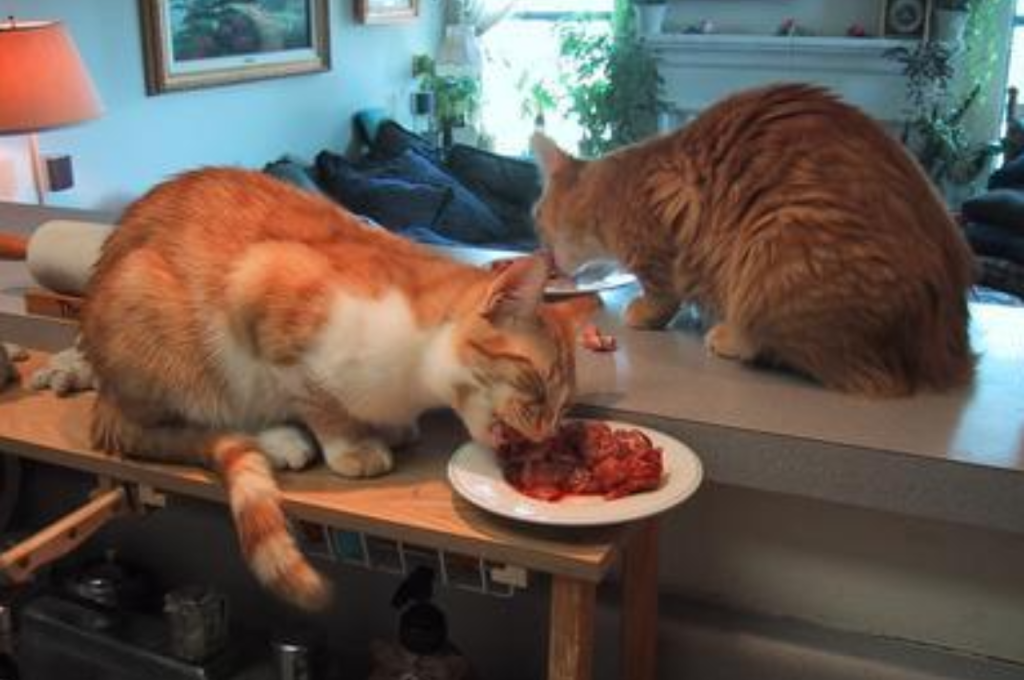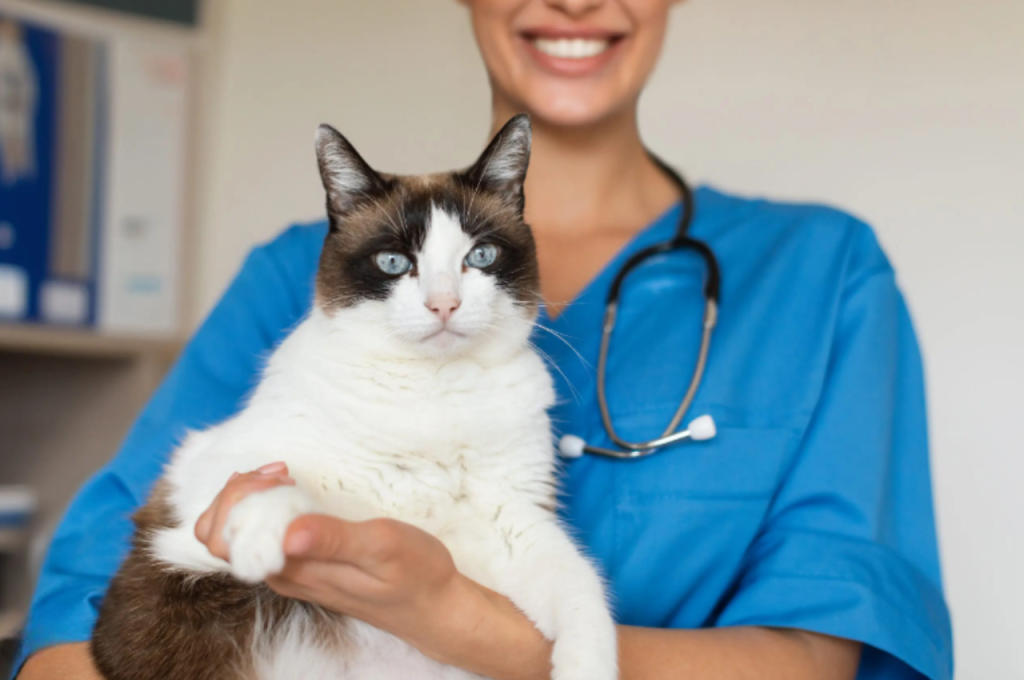The best kind of liver for cats is beef liver due to its high nutritional value and easy availability. Beef liver is packed with essential vitamins, minerals, and protein that support your cat’s overall health and well-being.
When it comes to providing a well-balanced diet for your feline friend, incorporating the liver can be highly beneficial. Liver is a nutrient-rich organ meat that offers a wide range of essential vitamins and minerals, including vitamin A, iron, and B vitamins.
These nutrients are vital for your cat’s immune system, vision, energy production, and overall growth and development. While there are different types of liver available, beef liver is considered the best choice for feline nutrition. It is readily accessible, affordable, and highly palatable for cats. Feeding your cat small amounts of cooked or raw beef liver can be a great way to ensure they receive the necessary nutrients to thrive. Remember to consult with your veterinarian before introducing liver or any new food into your cat’s diet to ensure it is suitable for their specific needs.
Different Types of Liver for Cats
When it comes to choosing the best type of liver for your cat, it’s essential to consider the different options available. Cats often enjoy liver as a tasty treat that provides essential nutrients for their overall health.

Beef Liver
Beef liver is a popular choice among cat owners due to its rich flavor and nutrient content. It is packed with protein and vitamins that can benefit your feline friend’s health.
Chicken Liver
Chicken liver is another excellent option for cats and is widely available. It contains high-quality protein and essential vitamins such as B vitamins that are beneficial for your cat’s well-being.
Other Options
- Rabbit Liver
- Duck Liver
- Pork Liver
Other liver options such as rabbit, duck, and pork liver can also be beneficial for cats. It’s important to vary your cat’s diet with different liver sources to provide a well-rounded nutrient profile.
Benefits of Feeding Liver to Cats
For optimal feline health, providing fresh, raw liver is essential. Among the various types, chicken liver is highly nutritious and easily digestible for cats. Its high protein content and essential vitamins and minerals support its overall well-being and immune function.
Rich in Essential Nutrients
The liver is an incredibly nutritious organ meat, and feeding it to your cat can offer a wide range of health benefits. This is because the liver is packed with essential nutrients that are vital for your cat’s overall well-being. When it comes to essential vitamins and minerals, the liver is an excellent source of Vitamin A, Vitamin B12, iron, and zinc. These nutrients play a crucial role in various bodily functions and are essential for your cat’s growth, development, and overall health.
Promotes Healthy Skin and Coat
Feeding liver to your cat can have a noticeable impact on their skin and coat health. The abundance of Vitamin A found in the liver helps to nourish the skin and maintain its elasticity, keeping it supple and healthy. Additionally, Vitamin A aids in the production of sebum, an oily substance that helps to lubricate the skin and maintain a glossy coat. Regular consumption of liver can also combat dryness, flakiness, and itchiness, ensuring your cat has a soft, shiny coat that is free from any irritation.
Boosts Immune System
A strong immune system is essential for cats to fight off infections, diseases, and other health issues. Feeding your liver to your cat can provide a significant boost to their immune system, thanks to its high concentration of Vitamin A and other antioxidants. Vitamin A is known to enhance the production of white blood cells, which are the body’s natural defense against harmful pathogens. By incorporating the liver into your cat’s diet, you can help improve their immune response, reducing the likelihood of falling ill and promoting overall good health. Moreover, the liver also contains important amino acids and proteins that support the immune system by aiding in the production of antibodies and strengthening the body’s defense mechanisms.
Potential Risks of Feeding Liver to Cats
While liver can be a nutritious addition to your cat’s diet, it’s essential to be aware of potential risks associated with its consumption. While the liver offers numerous health benefits, feeding it in excessive amounts or without proper precautions can lead to adverse effects. Here are some potential risks of feeding liver to cats:
Possible Vitamin Toxicity
The liver is rich in various vitamins, including vitamin A, which can lead to toxicity if consumed in excessive amounts. Cats require a balanced intake of nutrients, and excessive vitamin A can result in a range of health issues, such as bone abnormalities and liver damage.
Allergies and Sensitivities
Some cats may develop allergies or sensitivities to the liver, resulting in digestive disturbances or skin issues. It’s important to introduce new foods gradually and monitor your cat for any signs of adverse reactions.
Overfeeding Concerns
Feeding excessive amounts of liver to cats can lead to over-nutrition and imbalances in their diet. It’s essential to provide a varied diet and avoid relying solely on the liver to meet your cat’s nutritional needs.
How to Prepare Liver for Cats
The liver is an excellent source of nutrition for cats, providing essential vitamins and minerals. Preparing liver for your feline friend can be a beneficial addition to their diet. Knowing how to prepare liver for cats ensures that they receive the maximum nutritional benefits. Here are essential guidelines for choosing quality liver, cooking methods, and serving sizes.

Choosing Quality Liver
When selecting liver for your cat, opt for high-quality, fresh liver from a trusted source. Choose organic if possible to avoid additives or chemicals that could be harmful to your cat’s health.
Cooking Methods
Cooking the liver thoroughly is crucial to eliminate any harmful bacteria. A simple and effective method is to lightly sauté the liver in a small amount of olive oil. Avoid using excessive seasonings or additives, as these may not be suitable for your cat’s digestive system.
Serving Sizes
For optimal serving sizes, consider offering small portions of liver as an occasional treat rather than a primary meal. Moderation is key, as excessive consumption may lead to digestive issues for your cat. Consult with your veterinarian to determine the appropriate serving size based on your cat’s unique dietary needs.
Incorporating Liver into Cat’s Diet
Incorporating liver into your cat’s diet is a fantastic way to provide them with essential nutrients and add variety to their meals. The liver is packed with vitamins, minerals, and protein, making it a great addition to their regular eating routine. In this section, we will explore different ways to incorporate liver into your cat’s diet, including offering it as a regular treat, adding it to homemade meals, and ensuring it is balanced with other foods. Let’s dive in!
As a Regular Treat
Providing liver as a regular treat for your cat is a wonderful way to enhance their diet while offering them a delicious snack. Cats love the taste of liver, and it can be a healthy alternative to store-bought treats that may contain additives or fillers. You can offer small, bite-sized pieces of cooked liver as a special indulgence, rewarding your feline friend for good behavior, or as a way to bond during playtime.
As part of Homemade Meals
Incorporating liver into your cat’s homemade meals is an excellent way to ensure they receive the necessary nutrients while enjoying a variety of flavors. Simply chop the liver into small pieces and cook thoroughly before adding it to their regular meals. You can mix it with other ingredients such as chicken, fish, or vegetables to create a well-balanced and tasty meal. Remember to consult your veterinarian or a veterinary nutritionist to determine the ideal portion sizes and cooking methods for your cat’s unique dietary needs.
Balancing With Other Foods
While liver offers numerous benefits to your cat’s diet, it’s important to ensure it is balanced with other foods to provide a complete and nutritious meal. Always incorporate liver alongside a diverse range of proteins, such as chicken, beef, or fish, to provide a variety of essential amino acids.
Include carbohydrates and fibrous vegetables to support your cat’s digestive health. Regularly monitoring your cat’s weight, energy levels, and overall well-being will help you determine the appropriate amount of liver and other ingredients to include in their meals.
Signs of Liver-related Health Issues in Cats
Liver-related health issues can have serious consequences for your cat’s well-being, so it’s important to be aware of the signs and symptoms that may indicate liver problems. Here are some common signs of liver-related health issues in cats:
Jaundice
Cats displaying yellowing of eyes and gums might indicate liver issues. jaundice may indicate underlying liver disease or bile duct obstruction and should be evaluated by a veterinarian promptly.
Digestive Problems
Vomiting, diarrhea, loss of appetite & weight loss can signal liver trouble.
Changes in Behavior
Odd behavioral changes like lethargy, aggression, or disorientation can show liver problems.
Consulting A Veterinarian
When it comes to your cat’s health and well-being, consulting a veterinarian is one of the most important steps you can take. Veterinary professionals are trained to provide expert care and guidance to ensure that your cat remains healthy and happy throughout their life.

Nutritional Guidance
Your veterinarian can provide nutritional guidance on the type and amount of liver that is ideal for your cat.
Monitoring Liver Intake
Monitoring liver intake is essential to ensure your cat is receiving the right balance of nutrients without any excess.
Addressing Concerns
If you have any concerns about your cat’s liver consumption, your veterinarian can address concerns and provide solutions.
Conclusion
Choosing the right kind of liver for your cat is crucial for their overall health and well-being. By understanding the nutritional benefits and potential risks, you can make an informed decision. Remember to consult with a veterinarian to ensure the liver is properly sourced and prepared.
Providing your cat with high-quality liver can contribute to their optimal nutrition and support their essential bodily functions. Prioritize your furry friend’s health and offer them the best liver option available.
